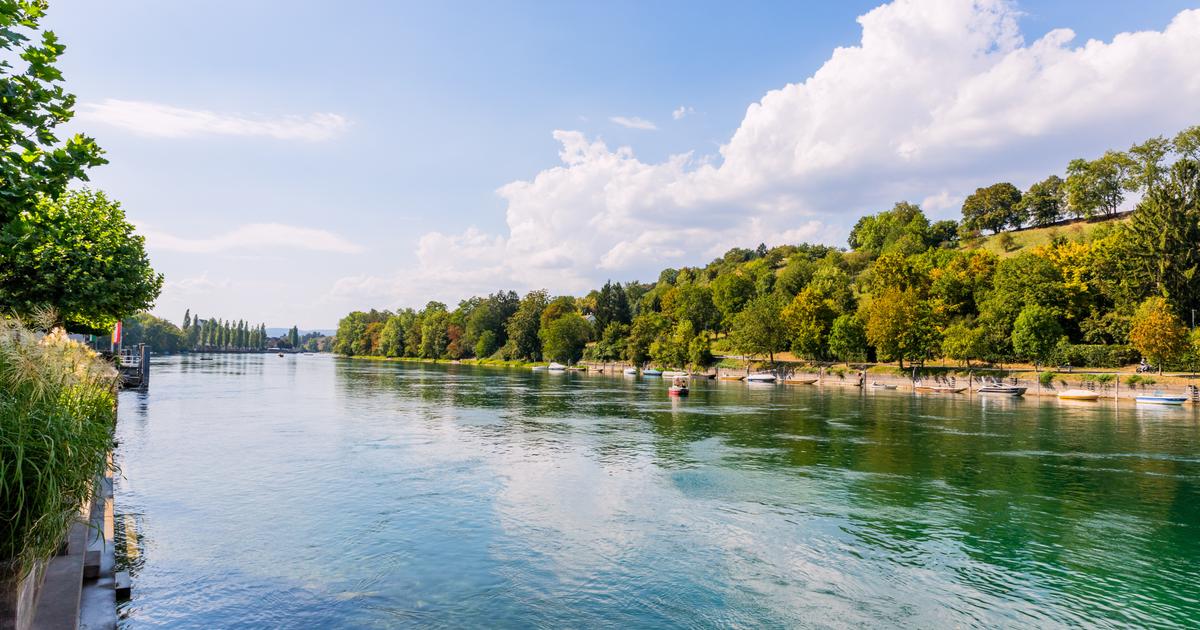Enlarge image
Cargo ships on the Rhine: Due to the persistent drought, the water level has reached a low
Photo: Arnulf Stoffel / dpa
On a section of the Rhine, the water level has fallen to zero due to a lack of rain.
This value was measured on Tuesday on the Lower Rhine in Emmerich near the border with the Netherlands.
The water level was only two centimeters as early as Monday afternoon.
Operation of the Rhine ferry stopped
According to the information, the previous low was on October 30, 2018 with a daily average of seven centimeters.
Four centimeters were measured as the daily low at the time.
Even if the actual level meter dries up due to low water, even minus values could be recorded with a second data collector in Emmerich, said an employee of the waterways and shipping administration of the dpa news agency.
The pointer at the Emmerich gauge house was already at zero or a little less on Monday afternoon because the small amounts of water on the large gauge are only shown with inaccuracies.
The water levels are not to be confused with the lowest point in the river.
The fairways for commercial shipping are significantly deeper than the water level according to the gauge.
This only shows the difference between the water surface and the so-called zero level, which is not at the deepest point of the river bed.
On Monday, the fairway near Emmerich was still almost two meters deep.
The operation of the Rhine ferry was discontinued.
“The tense situation is getting worse”
The Federation of German Industries (BDI) warns of serious consequences in view of the development on Germany's most important waterway.
"The persistent dry period and the low water threaten the security of supply for industry," said Deputy BDI General Manager Holger Loesch.
“Companies are preparing for the worst.
The already tense economic situation in the companies is getting worse.« Inland waterway vessels can currently only operate with minimal capacity utilization - »if at all«.
Switching to rail and road is difficult because of the bottlenecks on the rails, the corona pandemic and the lack of drivers.
"It's only a matter of time before plants in the chemical or steel industry are shut down, mineral oils and building materials don't reach their destination or large-volume and heavy transports can no longer be carried out," said Loesch.
Delivery bottlenecks, production cutbacks or even standstills and short-time work would be the result.
The low water could further exacerbate the emergency in the energy supply.
According to the BDI, the political plans to temporarily rely more heavily on coal in view of the gas crisis would be thwarted by massive transport bottlenecks.
swe/dpa









/cloudfront-eu-central-1.images.arcpublishing.com/prisa/S7ERVSCT4FUVX6R7TUVBDNTH5Y.jpg)


